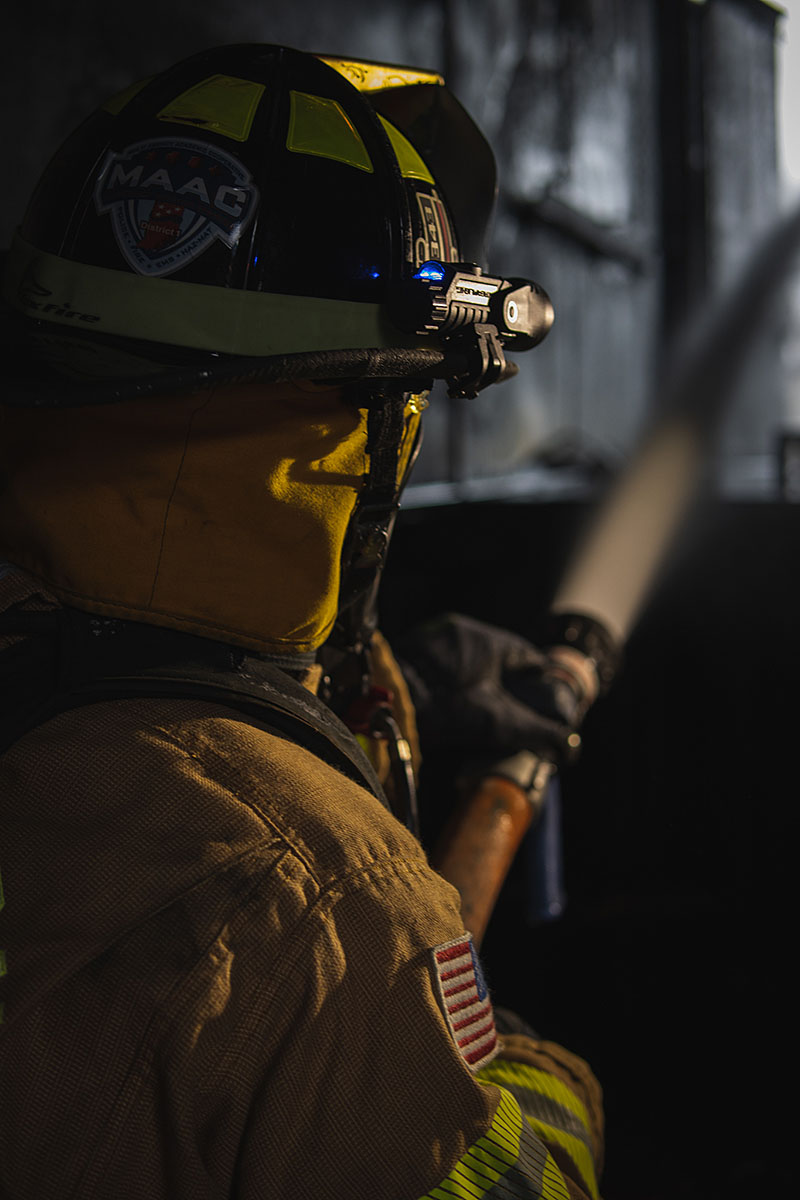Ricochet Policy Statement and Practices Related to PFAS
Ricochet takes its responsibility seriously for ensuring that its gear does not create undue hazards for the health and safety of first responders who rely on its products for their protection and overall well-being. With the rapidly evolving focus and potential concerns related to the use of per- and polyfluoroalkyl substances (PFAS) in first responder protective clothing, Ricochet has adopted a proactive stance for disclosing the use of fabrics or other garment components containing PFAS in certain Ricochet gear, transitioning to non-PFAS containing materials and components in its products to the extent possible, and in helping its first responder customers understand any changes in products that occur as the result of switching from PFAS-containing to non-PFAS containing materials and components.
Ricochet does not manufacture PFAS. Nor does Ricochet apply PFAS to any of its products or otherwise use PFAS in its manufacturing operations. However, certain fabrics and other garment components that Ricochet purchases from third-party vendors and incorporates into certain Ricochet first responder gear contain PFAS. Historically, PFAS has been used in two components of first responder gear: (1) as a durable water and stain repellent finish that is applied to the fabric used to make the gear in order to minimize water pick-up and reduce soiling/contamination of exterior and other layers of clothing; and (2) as the backbone polymer film used in barrier material layers that prevents the penetration of hazardous chemicals and infectious liquids while still permitting a high degree of breathability that in turn limits the physiological strain imposed on individual first responders who must wear highly protective gear during ultra-dangerous responses. These components are necessary to ensure that Ricochet’s gear meets the rigorous criteria established in the National Fire Protection Association (NFPA) standards for different first responder missions (structural firefighting, technical rescue, and emergency medical operations).
As of April 2024, Ricochet is aware of and is evaluating several alternative non-PFAS containing moisture barrier materials that may allow for the full replacement of all necessary gear components and still meet the requirements of NFPA1971 for minimum protection of first responders. These materials are in wear trials (to verify performance in the field) and in final UL Certification (to verify compliance with NFPA requirements).
In light of new claims that PFAS used in gear textiles may potentially contribute to wearer exposures, Ricochet is proactively working with its suppliers to identify any fabrics or components used in its gear that may contain PFAS. Based upon the information collected from its suppliers, Ricochet is disclosing any of its products that include materials or components that contain PFAS. Such disclosures include documentation that is being provided to Ricochet’s customers, which indicates if, how, and why PFAS is used in the particular products purchased. This policy is being applied to all customers and in all locations where Ricochet does business regardless of whether any disclosures are required by law.
In addition to its policy of disclosing the use of PFAS containing materials in certain components of its gear, Ricochet is committed to using non-PFAS containing materials and components in its fire gear products, where possible and available. Several of Ricochet’s materials suppliers have already transitioned some or all their offerings into non-PFAS products, and Ricochet uses non-PFAS containing materials and components when it may do so and still meet the applicable minimum NFPA performance requirements. Ricochet will continue to identify and move towards additional non-PFAS containing products as new technology becomes qualified and is readily available.
Lastly, in furtherance of its commitment to first responder health and safety, Ricochet will endeavor to ensure that its customers understand the differences in gear performance that may arise in the transition from PFAS-containing to non-PFAS containing products. Ricochet believes that first responders should be made aware of any differences that relate to product protection, comfort, and durability that are the result of material or component changes. To this end, as Ricochet becomes aware of research related to the performance of new fabrics and other gear components, Ricochet will make such information available to its customers so that they may make informed decisions about the gear that they wear.
